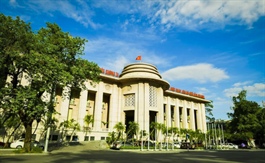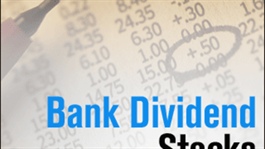Tax cuts on agenda to assist recovery
Tax cuts on agenda to assist recovery
New fiscal solutions are set to be applied to reduce risks of high inflation this year which are looming due to massive pressure in growing prices of a series of indispensable items and services, affecting consumption recovery and economic growth.

Minister of Planning and Investment Nguyen Chi Dung told the National Assembly (NA) last week that the government will continue keeping a close eye on inflation and implementing sturdy solutions to ensure supply-demand balance in the market, while “considering solutions to reduce taxes and fees in order to decrease pressure on increasing prices of petrol and oil, and shun domino impacts on prices to support enterprises and people.”
Vietnam is expecting it can rein in inflation at about 4 per cent for the whole year.
Minister of Finance Ho Duc Phoc also told the legislature that his ministry will consider a plan for reducing taxes of petrol and gasoline to reduce inflation and fuel prices in 2022.
“A reduction in fuel tax will be a solution considered. We will make impact assessments and report to the government, who will then report to the National Assembly Standing Committee and the NA,” Phoc said. “Currently one litre of petrol A95 imported from Singapore is at a basis price of VND22,000 (96 US cents), including VND8,000 (34 US cents) worth of assorted taxes.”
According to the Ministry of Industry and Trade (MoIT), the government is trying to provide sufficient petrol for the economy in Q2 2022. It is estimated that the economy’s demand for petrol will be about 5.2 million cubic metres of petrol in Q2, and 20.6 million cu.m for the whole year.
The petrol supplies for Q2 will be about 6.7 million cu.m, including petrol from domestic refineries (1.8 million cu.m from Nghi Son Refinery and Petrochemical Complex, and 1.9 million cu.m from Binh Son Refinery and Petrochemical Co., Ltd.), petrol imports of about 1.5 million cu.m, and petrol transferred from Q1 of 1.5 million cu.m.
“These supplies will help ensure sufficient petrol consumption in Q2, with 1.5 million cu.m provided for Q3,” said the MoIT in a report on Vietnam’s trade.
According to the Ministry of Planning and Investment, Vietnam is witnessing a rise in inflation, with a 5-month consumer price index (CPI) of 2.25 per cent on-year – including a high on-year increase from 0.7 per cent in March to 2.64 per cent in April, and 2.86 per cent in May.
“The 5-month inflation has been basically controlled. However, there is great pressure for the economy to rein in inflation at a rate of below 4 per cent this year due to a series of internal and external factors of the economy,” Minister Dung said.
According to the minister, the external factors include increasing prices of goods; food and foodstuffs; crude oil, and input materials – in addition to big risks in disruptions of supply chains, production, and consumption caused by the Russia-Ukraine conflict.
“At home, risks of high inflation will come from four factors including high costs for petrol, oil, imported inputs, and transportation; strongly-recovering domestic purchasing power and consumption; a big rise in school fees for the 2022-2023 year; and a climb in input material prices and lending rate expected to continue its uptrend – pressurising production costs and increased selling prices,” Dung explained.
It is calculated that the CPI in May rose 2.48 per cent against that in late 2021, or 1.5 times higher than that in May of 2019, reflecting a trend in high prices in the market in the coming time, Dung added.
Le Minh Tri who is Prosecutor General of the Supreme People’s Procuracy stressed at the legislature last week that currently businesses and people are facing great difficulties caused by the health crisis.
“Thus there should be more reduction in taxes and fees, which will contribute to the government’s efforts to curb inflation and assist them,” Tri said.
He suggested that the NA and the government consider more reduction of taxes and fees by at least 2 per cent, not only for 2022 but also next year, based on specific sectors and beneficiaries. “It is necessary to select sectors and those most affected by difficulties and be able to recover strongly to provide fee and tax reductions,” he noted.
An International Monetary Fund team led by Era Dabla-Norris visited Vietnam during April 4-20 and worked with authorised agencies about how the Vietnamese economy has performed and its outlook.
“Inflation is expected to edge up to 3.9 per cent by end-2022. Growth risks are tilted to the downside while inflation risks are tilted to the upside,” Dabla-Norris said. “The most immediate risks include the intensification of geopolitical tensions and a slowdown in China. Other risks include a tightening of global financial conditions and developments in the domestic real estate and corporate bond markets.”
The World Bank has projected that Vietnam’s inflation rate may be 3.6 per cent this year. It said that in the short run, targeted policy intervention to alleviate the impact of the price hikes on the general population, and especially on the most vulnerable, is recommended. The temporary petroleum tax reduction recently introduced by the authorities is one such short term measure, although perhaps the choice of reducing a specific environmental tax on petroleum may not reflect well on the environmental intentions of the authorities.
In the medium term, the World Bank continued, other measures would include a more targeted, effective, and responsive social protection system that would help build resilience to shocks in the economy. “If price increases persist, the economy should be allowed to adjust to the price changes,” the World Bank said in a report released recently.























